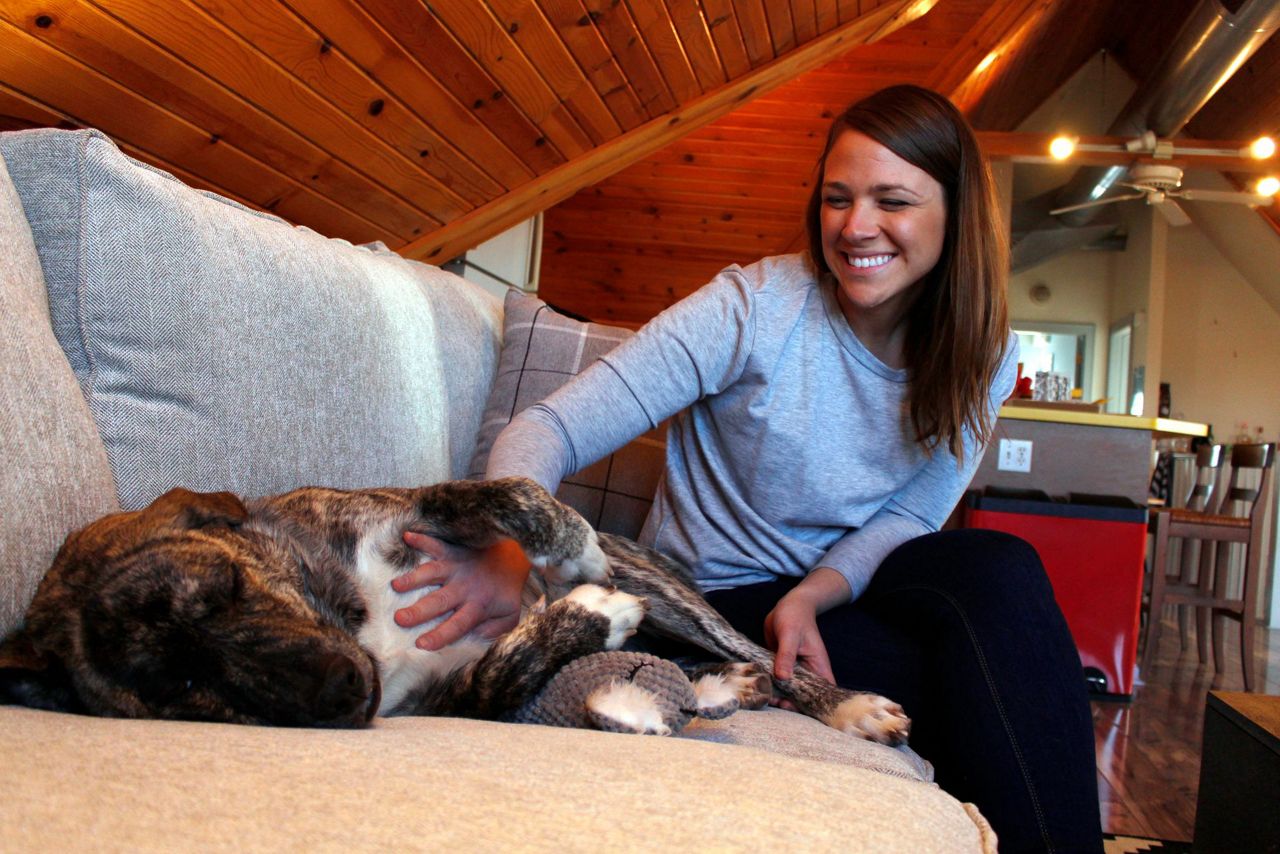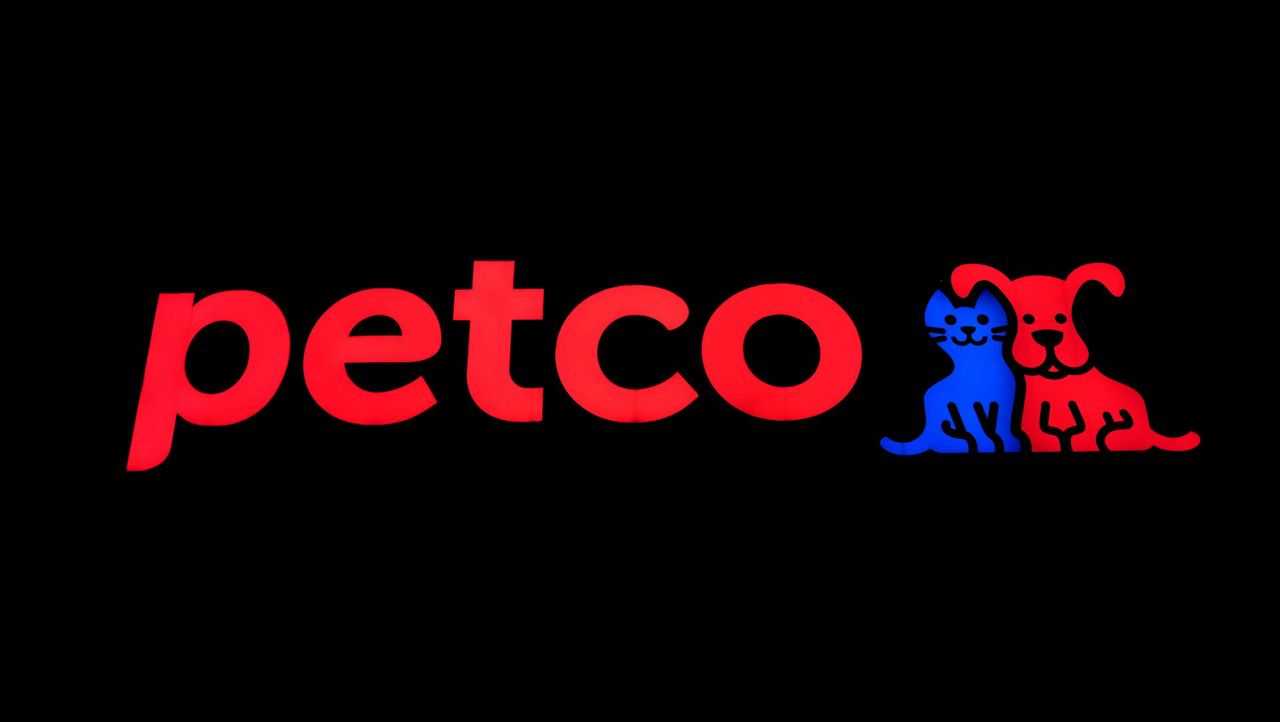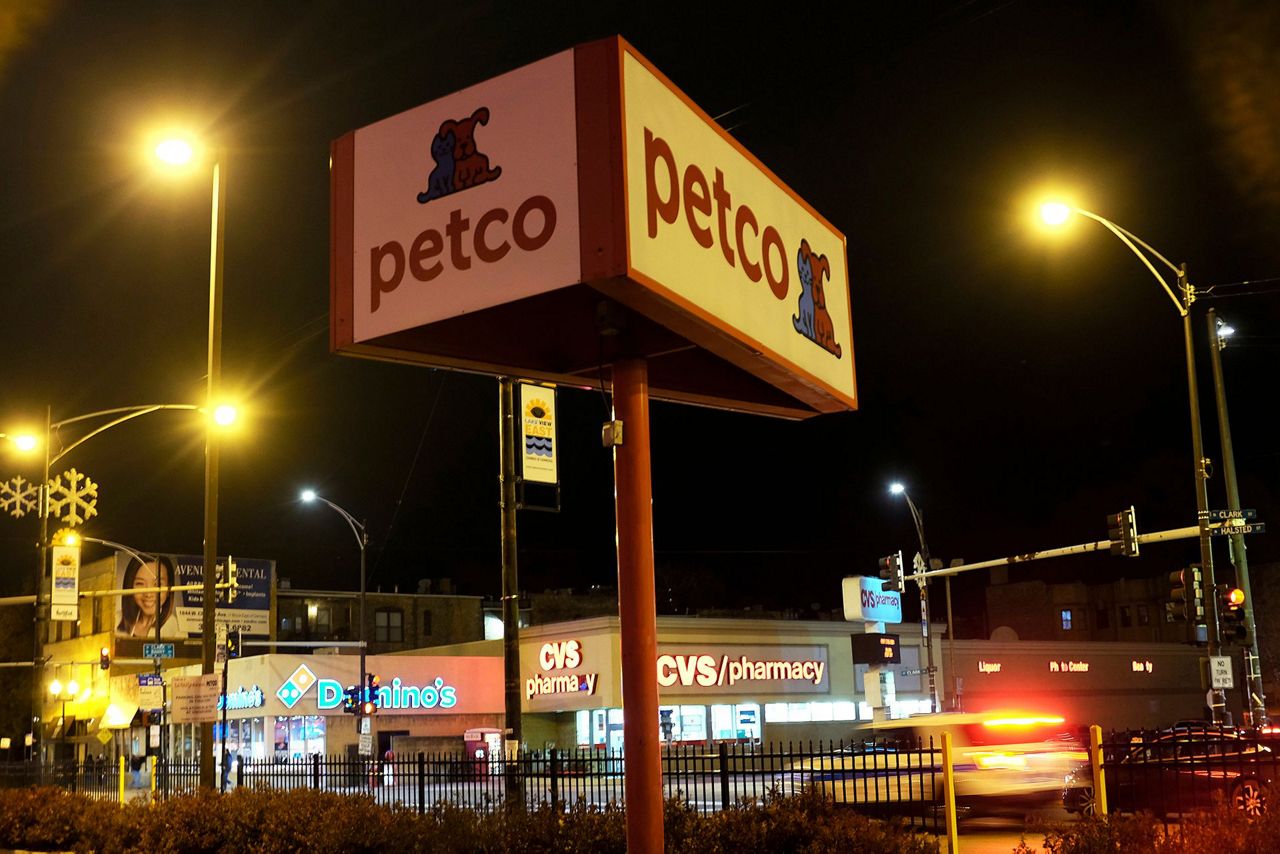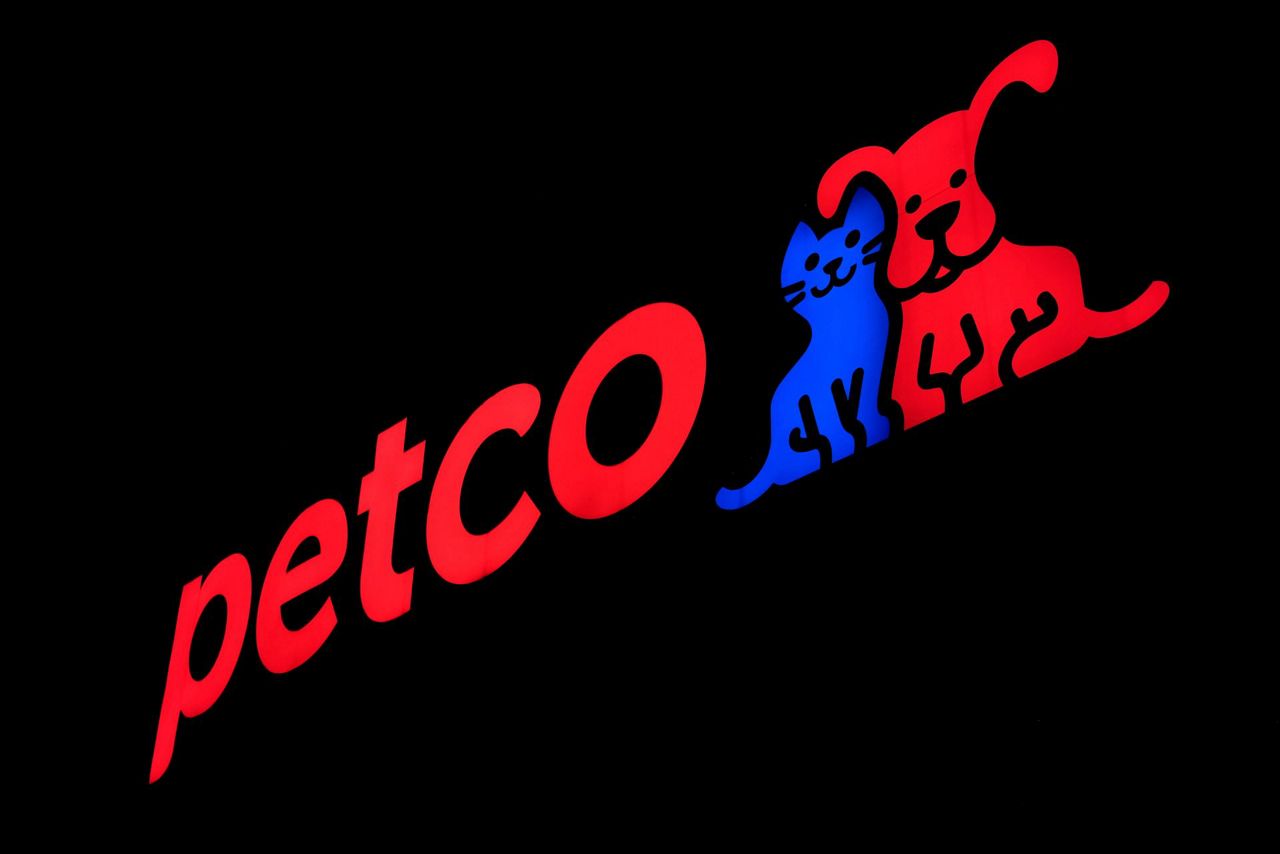Demand for healthy, natural food is extending from humans to their pets.
Petco announced Tuesday it will stop selling dog and cat food and treats with artificial colors, flavors and preservatives, both online and at its nearly 1,500 stores in the U.S. and Puerto Rico.
"We are making sure we are always taking the nutritional high ground," Petco CEO Ron Coughlin told The Associated Press.
Petco's move, the first of its kind among major pet stores, comes at a time when sales of natural pet foods are steadily rising.
Natural pet products still account for a small portion of the U.S. market share but growth has more than doubled to 6.5 percent between 2013 and 2017, according to Nielsen, a data company. Nielsen said sales of pet food free of genetically modified ingredients jumped 29 percent last year. Sales of pet food without artificial preservatives and colors grew 4 percent.
Americans spent $69.5 billion on their pets last year, up 4 percent from the year before, according to the American Pet Products Association.
Pet food has long mimicked human food, says John Owen, a senior food analyst for market researcher Mintel. In 1959, for example, Gravy Train dog food was introduced so dogs could enjoy gravy too.
As human tastes have grown more sophisticated, so have their demands for their pets, Owen said.
For dogs, there are bags of organic, vegetarian and grain-free food. Some brands claim to mimic ancestral diets, with kibbles made from venison or wild boar. Cans of cat food feature tilapia, rabbit and pumpkin.
Sensing the growing trend, two big food companies — J.M. Smucker Co. and General Mills — spent billions to acquire the natural pet food brands Nutrish and Blue Buffalo earlier this year.
Ashley Murphy, a 33-year-old project manager in Atlanta, has been watching the amount of sugar and preservatives in her own food. That made her question the ingredients in the food she feeds her dog Maddie, a Jack Russell mix.
Murphy recently switched to Canidae Grain Free Pure Ancestral dry dog food after reading the ingredients on lots of bags. Murphy wanted a food with more meat, fewer fillers like grains and corn, and fewer chemicals.
"Minus some of the minerals and some of the fermentation products at the very bottom of the list, I can pronounce every single ingredient in her new food," said Murphy, who said she doesn't mind spending more for the food.
Owen says young people like Murphy are driving the trend in natural pet food. He expects it will keep growing and lead to even more "natural" innovations, like freeze-dried raw food.
Coughlin says the majority of pet food Petco sells now doesn't contain artificial ingredients. Still, the change isn't insignificant; Petco sells around $100 million worth of dog and cat food with artificial ingredients each year.
Coughlin said food with those ingredients will start coming off the shelves in January. Some suppliers are reformulating their food; others simply won't sell through Petco anymore, he said. Food with artificial ingredients that isn't sold by May will be donated to animal shelters.
Eventually the store plans to expand its ban on artificial ingredients to foods it sells for other animals, he said.
Dr. Whitney Miller, Petco's top veterinarian, said there is limited research into the impact of artificial ingredients on dogs and cats. And Dr. Hollie Rebo, a veterinarian based in Dearborn, Michigan, said consumers shouldn't be overly concerned since pet food makers already limit those ingredients because they add costs.
When they do add things like artificial colors, it's because it makes the food more palatable to humans.
"I love the idea of getting rid of a lot of useless junk, but it's really there to sell more product," she said.
Copyright 2018 The Associated Press. All rights reserved. This material may not be published, broadcast, rewritten or redistributed.






